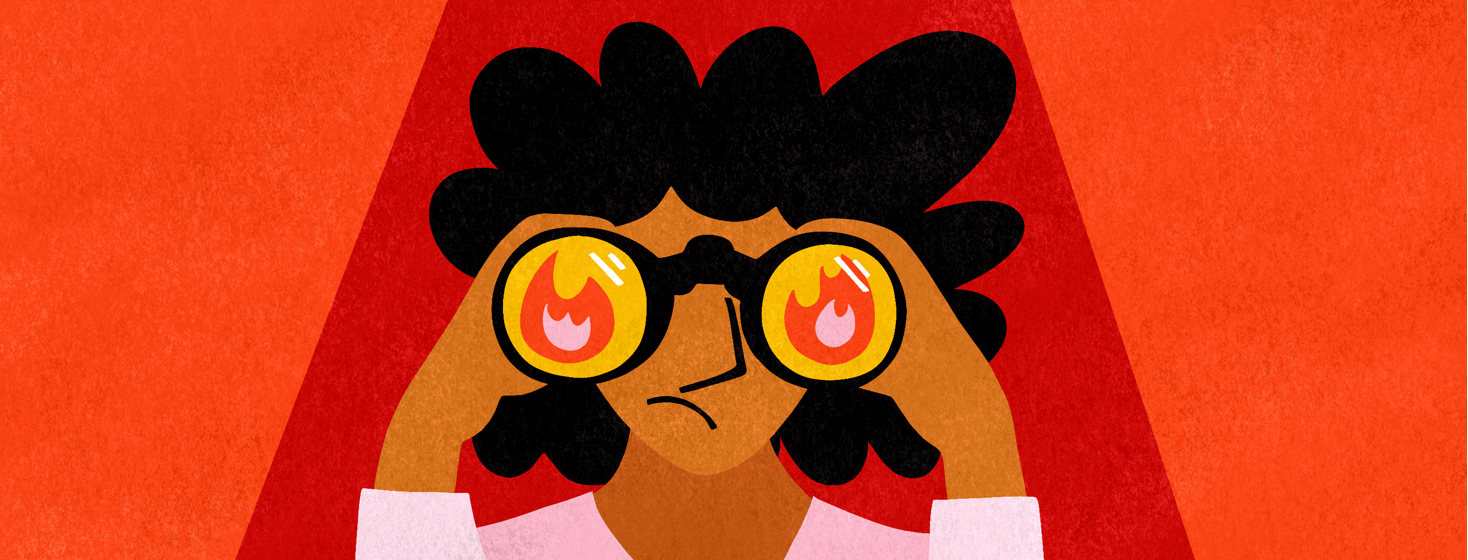5 Signs A Flare Is Coming
When a flare-up is about to happen, there are a few tell-tale signs I always experience.
I’ve had axial spondyloarthritis for about 10 years, although it’s been really active for the past four-five. At this point, I can tell fairly easily when a flare-up is about to occur, as though I am the shoreline and it is the water, making its way — tsunami-like — toward the sand. For me, it's not gradual. It's tidal.
A note: Sometimes flare-ups are made complicated by the fact that anytime there is something wrong with me, I end up playing the game of is this AS or is this something else? Fun times.
Here are five hints that an ankylosing spondylitis flare-up is on the horizon
Extreme fatigue
You know those mornings when you wake up and think, "Please God, let me sleep five more hours?" Yeah. Or, you know when you’re walking around as though you have a weighted blanket over your shoulders as if you're wading through molasses? That’s the sort of fatigue I’m talking about. It’s the kind of fatigue that tells you you won’t be able to do any of your chores or errands, so just give up!
Crankiness
When a flare-up is coming, I always get extra cranky, as though anything could push me over the edge. I tend to lose patience quickly, and I have to keep myself in check so that I don’t snap at people. This is probably some combination of being epically tired and annoyed from pain, but it’s also my way of setting boundaries so that I can conserve energy. It’s definitely not a great thing.
Overstimulation (or sensory overload)
This is a strange one since it's incredibly hard to describe (although I’ve heard from a lot of people in chronic illness communities that people experience it). Overstimulation, for me, can be best described as the feeling of exploding from the inside, due to too much stimulus, like light or noise or chaos or movement.
It's the feeling of needing to turn your brain off right now. There are plenty of reasons why this may happen, but one of the core reasons could be hypersensitivity, which occurs often with conditions like fibromyalgia and chronic fatigue syndrome.
Another theory is that our bodies have a hard time processing information, perhaps due to serotonin dysfunction. This might all feel like you’re about to have a panic attack, or like you can’t focus on anything at all. Whenever I get like this, it’s usually because a flare-up is on the horizon or I’m in the middle of one. My personal (not a doctor!) theory is that my body has a hard time dealing with stimuli while it’s also busy fighting off inflammation.
Random intense localized pain
Really obvious, intense pain in my hips, pelvis, back, or neck usually precedes a flare-up for me (I realize this might be different for others). For example, I’ll wake up and suddenly notice that my hips are in incredible pain, or I'll get outside after moving perfectly fine all day and suddenly feel like I can't walk at all.
Usually, when the pain is that intense and that quick to come on, it means that other pains will follow. For me, it’s not a gradual onset, but a horrible shocking shift from being relatively okay to being suddenly in pain. Other pain triggers? Alcohol and stress.
Brain fog
Brain fog is something that I deal with pretty much all of the damn time, but it worsens during flare-ups and before flare-ups. It feels as though I can’t remember anything like I am incredibly slow to process and perform tasks that must be done, and like my brain is a pile of mush.
As a writer and journalist, this can be incredibly frustrating, as I have a problem articulating myself, finding the right word, remembering tasks or follow-up phone calls, or catching errors before finishing a project. I try to give myself a lot of space to just breathe and step away when I need to since brain fog can be totally all-consuming.

Join the conversation